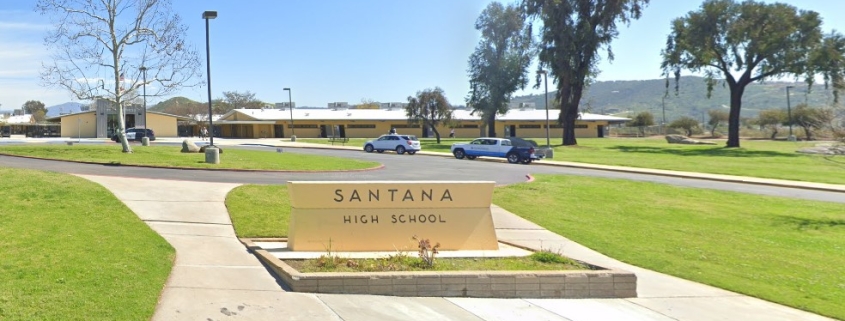Parole Denied for 2001 Santana High School Shooter
San Diego County District Attorney Summer Stephan said today that the Santana High School shooting defendant who opened fire at the school in Santee, California in March 2001 with a
revolver, killing two students and wounding 13 others was denied parole after an eight-hour hearing this morning in which 22 victims testified. After the hearing to weigh suitability for release, parole officials denied 38-year-old Charles “Andy” Williams’ request and said he should not be up for consideration again for another three years.
“I’m grateful to the Parole Board for listening to the victims in this case whose lives were forever changed by the defendant’s premeditated and cruel acts that terrorized an innocent school campus,” DA Stephan said. “Neither the 13 wounded victims nor the families of the two murdered students can regain what the defendant took from them.”
Williams was sentenced to 50 years-to-life in prison in June 2002. His parole hearing comes exactly 23 years since the mass shooting. His chance at parole is due to a change in state law that altered sentencing guidelines for juveniles who were tried as adults. In Williams’ case, the Youthful Parole law requires that any juvenile who was charged as an adult and received a life sentence has a chance at parole no later than 25 years into their sentence. Williams was 15 when he committed the crime.
In today’s hearing, the District Attorney’s Office argued that Williams remains an unreasonable risk and danger to society. Twenty-two victims who suffered as a result of the school shooting attended the video hearing and provided victim impact statements regarding the effects of the shooting.
The DA’s Lifer Hearing Unit has two main goals: to ensure that dangerous prisoners with life sentences are not released carelessly or improvidently, and to ensure that crime victims and their families are given an opportunity to participate in the parole hearing process and have their voices heard.
When a defendant is given a life sentence, the Lifer Hearing Unit processes the case to ensure that it is ready for future parole suitability hearings. This involves preserving victims’ statements and documenting the gravity of the crimes to ensure the offenders serve sentences proportional to their crimes.
Last year, there were 664 lifer parole hearings scheduled in San Diego County. Of those, 96 inmates received parole grants from the California Board of Parole Hearings. The remainder of the hearings –568– resulted in denials, postponements, or stipulations to a denial of parole.
The Lifer Hearing Unit is the state-wide leader in lifer matters and San Diego County serves as the training office for other prosecutors who seek to understand the complex laws governing parole hearings.
“Our DA Lifer Unit handles these complex and often gut-wrenching hearings, led by Deputy DA John Cross who is a statewide leader in lifer law,” DA Stephan said. “The Unit does an excellent job of representing victims and working to protect the safety of our communities when violent criminals are being considered for release.”



